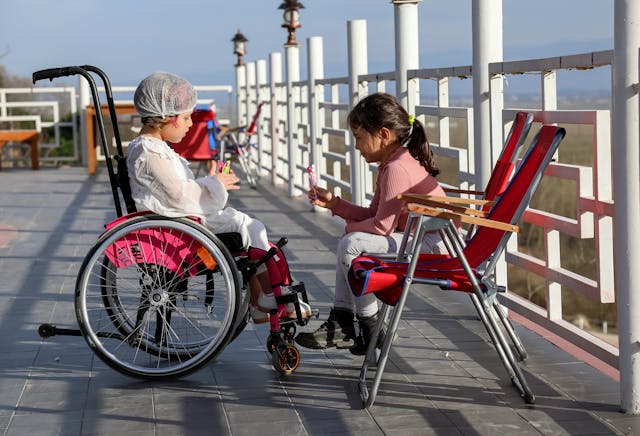Caring for a child with a brain injury is a major responsibility. If you’re in this position, then you might wonder how you can live up to the task. Let’s take a look at what’s involved, how you can deliver the best possible care, and where to turn to when you can’t.
Table of Contents
Getting a Diagnosis
The human brain is an incredibly complex and mysterious thing. Consequently, there are a number of different kinds of brain injury – and different medical professionals might disagree over which diagnosis is appropriate for a given patient.
There are a few distinctions worth bearing in mind, however. The first lies between an acquired brain injury (or ABI) and a traumatic one (TBI). The former are present at birth; the latter result from trauma to the head. Tumors, strokes, and encephalitis can all drive brain injury, too.
By getting the right diagnosis, you’ll be able to put the affected child on the path to the appropriate treatment. When the wrong diagnosis is made, that treatment might be withheld – or the wrong treatment might be applied. As such, it’s worth considering several opinions.
In cases where a misdiagnosis has occurred, you might pursue a legal claim against the individual or organization responsible. In this case, consulting solicitors who specialize in brain injury will give your claim the best chance of success.
Supporting Children With Brain Injuries
One of the most challenging things about this kind of injury is that brain injuries tend to affect the personality of the person affected and the way that they interact with others. This can place a strain on the relationship between the caregiver and the child, which, for parents, can be very tough.
What matters here is that caregivers make themselves aware of the possibilities beforehand. While the knowledge won’t make it easier, it’ll make it a lot less difficult than it would otherwise be.
You might also think about how you’ll support yourself. Having a supportive core of friends or family to provide counseling or help with simple tasks like cleaning can be invaluable.
Getting financial support
Caring for a child with a brain injury is a full-time job. As such, taking on this responsibility will mean compromising your professional ambitions. Look into the financial support available to people in your position. This is another area where a competent solicitor will be able to help.
Education
Children with brain injuries might also need specialized care. Sometimes, an ordinary school might not be appropriate – because children with brain injuries often need more support than these institutions can provide. Your local authority should be able to provide you with a list of publically funded and independent special schools that will be able to cater to the needs of your child.
Socialization
Children with brain injuries require social outlets, much like everyone else. But it can be tricky to find groups of like-minded children and carers, all of whom are in the same situation. Ask around where your care is being provided; support groups for children with brain injuries are almost always welcoming of new members.
Featured Photo by Meruyert Gonullu: https://www.pexels.com




